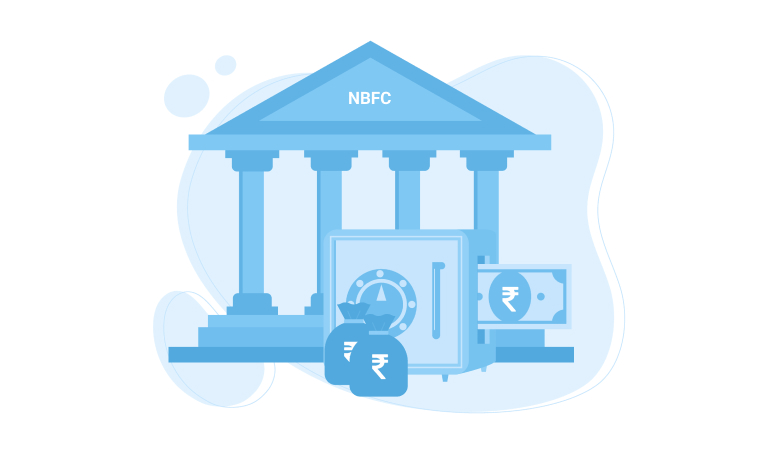NBFCs: Pioneering the Future of India's Financial Landscape
Updated On : Sep 2023
Non-Banking Financial Companies (NBFCs) in India play a pivotal role in the country's financial landscape. They provide diverse financial services, from loans to investments, catering to individuals and businesses. NBFCs majorly cater to small and medium-scale businesses, entrepreneurs, farmers, and other segments that do not have access to traditional banking services. Regulated by the RBI, NBFCs contribute significantly to financial inclusion and economic growth, complementing traditional banking institutions.
Major factors contributing to the growth of NBFCs in India are as follows:
- According to data from the RBI, banks have experienced slow credit growth in recent years, leading to a credit shortfall that NBFCs have successfully bridged.
- NBFCs have effectively addressed the financial requirements of small and medium-sized enterprises (SMEs), a segment that has been underattended by conventional banks.
- Indian government initiatives promote financial inclusions. Various schemes launched by the government are Pradhan Mantri Jan Dhan Yojana (PMJDY), Mudra Yojana, and Stand-Up India for providing financial services.
- The ascent of digitalization has been a notable catalyst for NBFC's expansion. Embracing digital platforms has enabled NBFCs to broaden their customer outreach, streamline operations, trim expenses, and improve the overall customer journey. Consequently, NBFCs can now provide competitive interest rates and tailored products to a broader clientele.
Recent advancements and emerging trends in the NBFC sector:
Several factors are anticipated to fuel the growth in the NBFC sector, including rising credit demand, government efforts to enhance financial inclusion, and the surge in digitalization.
1. Digital Transformation
Digital transformation stands out as a prominent trend impacting the financial services sector, including Non-Banking Financial Companies (NBFCs) in India. With the widespread use of smartphones and internet connectivity, digital platforms have emerged as pivotal channels for delivering financial services. NBFCs have been swift in embracing digital technologies to elevate customer experiences, streamline operations, and curtail expenses.
They have created online platforms for tasks such as loan applications, disbursements, and repayments. Furthermore, they have integrated artificial intelligence and machine learning algorithms into their processes to assess risk and determine credit scores. This digital transformation has yielded substantial gains in operational efficiency, empowering NBFCs to offer expedited and more dependable services to their clientele.
2. Innovative Loan Products Launched
In India, Non-Banking Financial Companies (NBFCs) have introduced inventive financial products to meet the changing requirements of their clientele. For example, gold loans have gained substantial popularity as a convenient source of short-term financing, and NBFCs have been at the forefront of this trend. Additionally, they have extended their offerings to include loans against securities, education loans, and consumer durable loans. This spirit of innovation has enabled NBFCs to broaden their loan portfolio, tap into fresh customer segments, and sustain a robust growth trajectory.
3. Regulatory Framework for NBFCs
The NBFC regulatory landscape has transformed in recent years. In 2018, the Reserve Bank of India (RBI) implemented stringent measures aimed at bolstering financial stability and averting future default occurrences. These measures encompassed elevated capital adequacy ratios, stricter liquidity standards, and a more rigorous classification system. While compliance costs for NBFCs surged initially, these regulations ultimately established a resilient regulatory framework, boosting investor confidence and diminishing sector-related risks.
NBFCs have played a crucial role in India’s financial ecosystem. Rising loan demand, government attempts to promote financial inclusion, and the emergence of digitalization have all contributed to the growth of India's NBFC business.
The outlook for NBFCs (Non-Banking Financial Companies) in India appears optimistic, as several factors are poised to drive their future growth. These factors include the ongoing digital transformation, the introduction of innovative financial products, and the establishment of a sturdy regulatory framework.
Nelito Systems offers customized solutions & services for its clients from finance and other sectors. To learn more about it, write us at marketing@nelito.com or visit us here.


Comments :